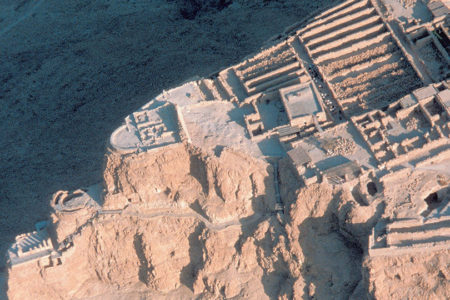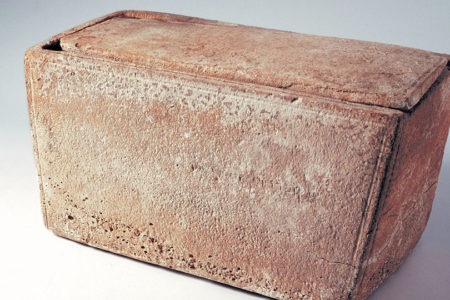The Other Names of God
Biblical names are usually significant. Unlike the common practice today, ancient names were usually chosen for a specific reason. People were not as concerned with how a name sounded or what others thought of it as they were with what the name meant. More often than not, it revealed a specific character trait of the one being named.
Such is the case with the biblical names of God. They reveal the nature, character, and attributes of the only true and living sovereign of the universe.
God’s names are revealed as three primary names, then as compound names that stem from the primaries. The chart to the left covers a majority of the compound names found in the Bible. The first four use the primary name Elohim, while the latter eleven have Jehovah as their root.
Accompanying each name on the chart is a key Scripture where the name is cited. Some names are used only once in the entire Bible, while others occur frequently.
| Name | Meaning | Key Scripture Reference(s) |
|---|---|---|
| El Shaddai | The All-Sufficient One | Gen. 17:1 |
| El Elyon | The Strongest Strong One The Most High God |
Gen. 14:20; Dan. 4:32 |
| El Roi | The God Who Sees | Gen. 16:13 |
| El Olam | The Everlasting God The God Without Limits |
Gen. 21:33 |
| Jehovah Jireh | The LORD Will Provide | Gen. 22:14 |
| Jehovah Rophe | The LORD Who Heals | Ex. 15:26 |
| Jehovah Nissi | The LORD Our Banner | Ex. 17:15 |
| Jehovah M’Qaddash | The LORD Who Sets Apart | Ex. 31:13 |
| Jehovah Shalom | The LORD Our/Is Peace | Jud. 6:24 |
| Jehovah Sabaoth | The LORD of Hosts | 1 Sam. 1:3, 11 |
| Jehovah Raah | The LORD Is My Shepherd |
Ps. 23:1 |
| Jehovah Shammah | The LORD Is There/Present | Ezek. 48:35 |
| Jehovah Tsidkenu | The LORD Our Righteousness |
Jer. 23:6 |
| Jehovah Nakeh | The LORD Who Strikes | Ezek. 7:9 |
| Jehovah El-Gomolah | The LORD Is the God of the Recompense |
Jer. 51:56 |
El Shaddai
This name became well known through a popular Christian song in the 1980s. El Shaddai combines the Hebrew words El, which references strength or the Strong One, and shad, a Hebrew word for “breast.” The English Bible identifies El Shaddai as The Almighty God; God Almighty; or simply, The Almighty. This is a very tender and compassionate name for God. The idea conveyed is that God nurtures and sustains us. He, therefore, is all we need.
El Elyon
El Elyon refers to the Lord as the strongest strong one; the highest high one; the most powerful, powerful one. In Hebrew, repeating the same word (El El) indicates the superlative, the best, the highest extent. Such is the case with the Song of Solomon. In Hebrew the title is “The Song of Songs, which was Solomon’s.” The Hebrew word for song is repeated twice, indicating that of all Solomon’s songs, this one is his best—the song of all songs.
El Elyon is often identified with the book of Daniel where it appears repeatedly and was used to show the Babylonian kings that, despite their victory over Judah, the God of the Jewish people was still the Most High God.
El Roi
Appearing only once in all of Scripture, this is a very important name for the Lord. It assures us that He is always the God who sees.
El Olam
The Hebrew word Olam literally means “hidden, concealed; time immemorial, time past, antiquity; eternity, without end.”1 He is the God of eternity, without beginning and without end.
Jehovah Jireh
The Hebrew here could also be translated “Jehovah will see to it.” Thus He is the Lord who will provide and who will see to whatever is needed by those who are His.
Jehovah Rophe
Rophe can be translated “to cure, cause to heal, physician, or to make whole.” It reveals that God is indeed the Great Physician and the God who can heal, if it is His will.
Jehovah Nissi
Nissi is Hebrew for “standard, ensign, banner, or flag.” These items were often taken into battle and used as rallying points for troops as they engaged the enemy. Believers are in a spiritual war with Satan and his demons; and the Lord is our banner, our rallying point in our spiritual warfare.
Jehovah M’Qaddash
Qadash literally means “to be clean, to make clean, to pronounce clean,” and “to hallow, to dedicate, to sanctify.”2 It is closely related to the Hebrew word for “holy.” This name not only implies sanctification but also that God is the one who cleanses us from sin and sets us apart for His service.
Jehovah Shalom
One of the most often recognized Hebrew words is shalom, which literally means “peace.” True peace comes only from the Lord, who is peace and can bring peace. This peace is vertical—between God and reconciled, lost humanity, and horizontal—between those who have received the peace of God that surpasses human understanding.
Jehovah Sabaoth
Tzavaot is the Hebrew word that becomes Sabaoth in the English Bible. It speaks of a mass, throng, or host of persons organized for or waiting for war or those who have assembled for war. In Israel today, the word is well known as a part of the name of the Israel Defense Forces (IDF). In Hebrew the IDF is known as Tzava Ha Haganah L’ Yisrael, which literally means “the host, or army, for the protection of Israel.” This name for the Lord refers to Him as the Lord of the armies of heaven.
Jehovah Raah
“To tend or pasture” is the meaning of Raahin Psalm 23:1. Thus the name The Lord Is My Shepherd.
Jehovah Shammah
Appearing only once in Scripture, this name fortifies the concept of God’s omnipresence. He has been and always shall be there, or present. There has never been a time or a situation where He has not been.
Jehovah Tsidkenu
This name implies truth, justice, equity, and doing what is right. These qualities clearly describe the Lord.
Jehovah Nakeh
Nakehliterally means “to strike or smite.” The Lord is the one who will strike because of sin and the one who will judge because of it.
Jehovah El-Gomolah
El-Gomolah means “to give one his just desserts, to requite.” God is the one who will take care of His enemies and those of His people. He is the one who promised Jeremiah that He would pay Babylon back for what she had done to Israel.
God has given us these names because He desires that we know Him. Daniel 11:32 includes a beautiful promise to all who seek to know the one true God: “But the people that do know their God shall be strong, and do exploits.”
ENDNOTES
- Spiros Zodhiates, ed., “Lexicon to the Old and New Testaments,” in The Hebrew-Greek Key Study Bible (Chattanooga: AMG Publishers, 1984), 1,621.
- Ibid., 1,633.








I always wanted to know the names of God, so that as I pray to Him there is a greater understanding of what I’m praying for and the purpose of the prayer.
Thank you for sharing your knowledge, that helps them to develop a closer relationship with God
This information is invaluable! What a beautiful simplistic study of the names of God! So needed for in-depth study of our Lord! Thank you
I seek to know my Lord and Savior more abundantly. Thanks for publishing the names of God. I truly appreciate it.